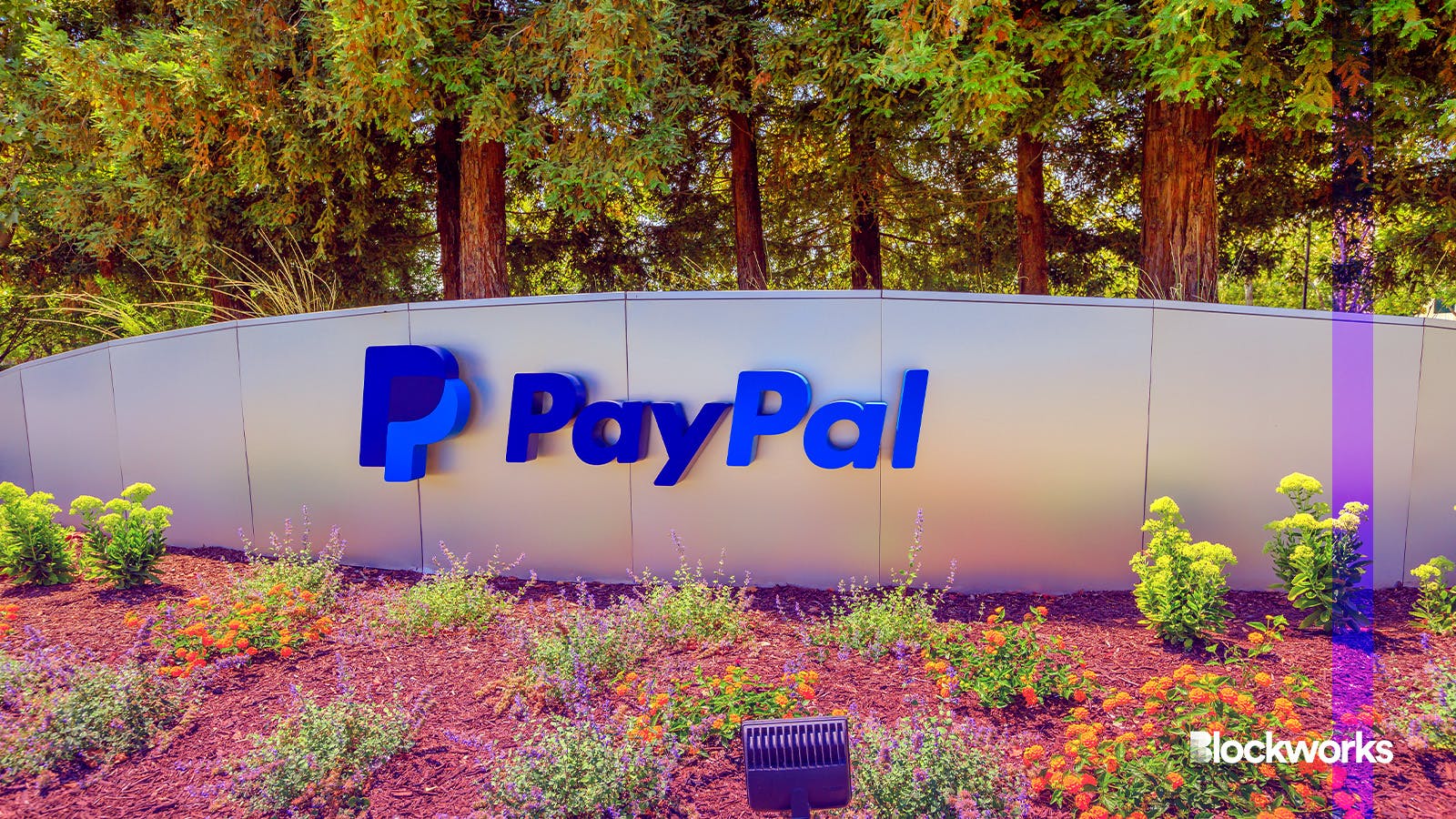PayPal Ventures uses its stablecoin for investment in crypto transfer platform Mesh
The news follows on PYUSD deployment proposals on Aave and Curve

Benny Marty/Shutterstock modified by Blockworks
Back in August, PayPal introduced a new stablecoin onto the market called PYUSD, leading to a flurry of analysis and speculation about the asset’s utility in the Web3 space. Recently, attention has turned toward the stablecoin’s application in venture capital investments.
PayPal announced on Monday a $6.5 million investment in Mesh, a company specializing in enhancing digital transaction security and efficiency. $5 million of the investment was paid out in PYUSD.
This marks PayPal Ventures’ first known crypto investment since May 2023, when it invested in Magic Labs, a service focused on providing secure and user-friendly digital wallet solutions.
Read more: Crypto Funding: Wallet provider Magic Labs takes the cake in $126M week
Mesh is building a product for users to move crypto between different financial accounts and wallets. Fellow investor Galaxy likened Mesh to “Plaid but with the read, write and transfer capabilities.”
PayPal Ventures’ reason for making the investment in stablecoins as opposed to fiat was not immediately clear.
Mesh co-founder and CEO Bam Azizi said he was “thrilled” when PayPal Ventures approached him about making the investment largely in PYUSD.
“When compared to alternative payment methods [like] wire transfers, PYUSD is superior because it works 24/7 and has a very low cost. This was also a great opportunity for us to demonstrate the security and robustness of Mesh API and that the vision for both companies is perfectly aligned,” Azizi said in an email.
Read more: 2024 will be the year for stablecoins
“This is a big moment for the company and one Galaxy is excited to be a part of,” was all Galaxy wrote on the subject of PayPal’s PYUSD investment.
The venture investment is the latest in what has been a mostly-quiet rollout for PYUSD following a good amount of fanfare at release. In December and January, a contractor hired by PYUSD issuer Paxos proposed deployments for PayPal’s stablecoin on DeFi protocols Aave and Curve.
Read more: PayPal stablecoin deployment on Aave sought by Paxos
Despite nearly doubling its market capitalization since early December, PYUSD remains just the eleventh-largest stablecoin, according to CoinGecko. PayPal’s stablecoin suffers partly from not being a first mover in a space where assets like USDT and USDC can be attractive to investors for their deep liquidity.
It’s also unclear where PYUSD stands on PayPal’s priority list. Some speculated further PYUSD development was on the way after new PayPal CEO Alex Chriss promised to “shock the world” with PayPal’s new products in a CNBC interview.
The eventual announcement video was mostly AI-focused and didn’t contain any mention of PYUSD. PayPal did not return a request for comment.
Updated Jan. 29, 2024 at 3:49 pm ET: A previous version of this article stated that Mesh was already a part of PayPal Ventures’ portfolio. A modification was made to clarify that PayPal and PayPal Ventures are distinct.
Get the news in your inbox. Explore Blockworks newsletters:
- The Breakdown: Decoding crypto and the markets. Daily.
- 0xResearch: Alpha in your inbox. Think like an analyst.






